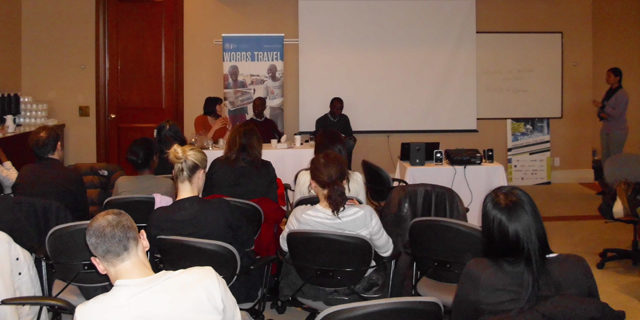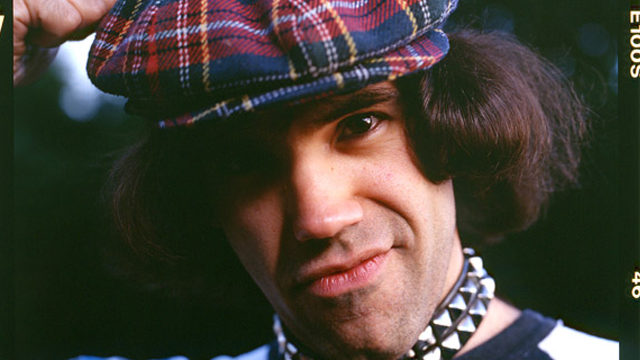Across North Africa during the Arab Spring, protesters turned to their cellphones to fuel a revolution. They used Twitter and Facebook to organize themselves and chronicle events.
While the use of social media is prevalent in Egypt, Tunisia, and Libya, in other parts of the continent it’s being used in pre-existing democracies. During Social Media Week in Toronto, Journalists for Human Rights (JHR), a non-governmental organization working in sub-Saharan Africa, held a discussion about the “other” social media revolution. Carissa MacLennan, a JHR education specialist; Ato Kwamena Dadzie, a Ghanaian journalist; and Kennedy Jawoko, a Canadian-Ugandan journalist, shared their insight on the topic.
In sub-Saharan Africa, cellphones quickly took over as the primary communication tool even before landlines became common. While getting online in an internet café can be expensive for the average person, people can access Twitter and Facebook from their phones. And it’s becoming a popular way to communicate—a few days after the discussion, a Kenyan chief used Twitter to alert residents that thieves were present in the village.
But Twitter and Facebook aren’t the only social media tools being used. Jawoko talked about one developed in Kenya that mapped conflict within the country. In 2008,Ushahidi allowed people to report where post-election violence was breaking out simply by sending an SMS to a network. Similar technology has been used elsewhere. Rachel Pulfer, executive director of JHR, talked about a network in Liberia that was used during an election to alert the UN of incidents that would compromise the fairness of the results. Though the election is still contested, she says it was non-violent, largely because of this technology.
Though Dadzie sees the value of Twitter and Facebook in cities, he says it’s not accessible for Ghanians in rural areas. “Radio is the best way to rally people outside urban centres,” he says. Until the internet infrastructure is improved and literacy in Ghana improves, he sees radio as a complement for social media. It’s something he practises, using his blog to expand on the topics he discusses on Joy FM and other issues. But Dadzie takes his time before publishing his thoughts online. “I’ve gotten it wrong a couple of times,” he says. He tries to apply the same rules he uses in radio to his online presence—if you can’t verify something, don’t say it on air and don’t publish it online.
Lead image via Said Henry.
About the author
Leah Wong was the Senior Online Editor of the Summer 2012 issue of the Ryerson Review of Journalism.

